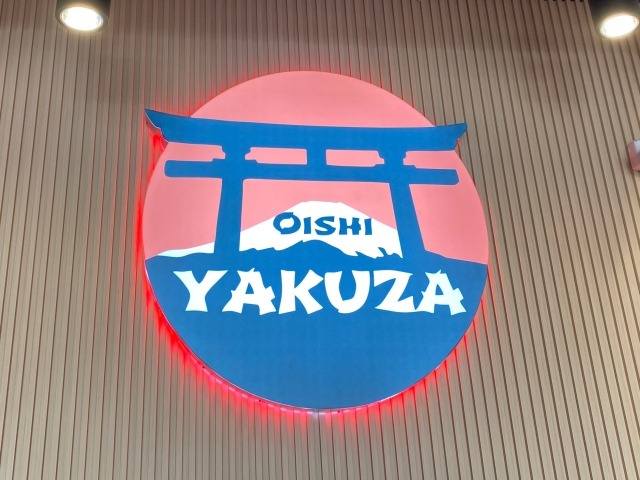
Just look for Big Tom standing out front.
Not too long ago, our rambling reporter Ikuna Kamezawa traveled to the South East Asian country of Laos, and while there had a sudden hankering for sushi. A Google Map search revealed the familiar name of Japanese restaurant chain Sushiro, but when Ikuna arrived she found that not all Sushiro’s were created equal and ended up in a different kind of sushi restaurant that was out of her price range.
Not one to give up, our reporter headed over to the nearest ATM in the capital city of Vientiane and loaded up on kips to try once more. She also checked Google Maps again and found a different sushi restaurant with an even more memorable name.
Public transportation options were few and far between here, so Ikuna got around mostly by motorbike.
Luckily, her smartphone map made finding places a breeze – not that Yakuza Oishi Sushi was particularly easy to miss.
Outside was an inflatable figure of the restaurant’s mascot Big Tom. That seemed like more of a mafia name, but maybe in Laos “yakuza” was just a generic term for organized crime, kind of like how we often call the bratva the Russian mafia.
The interior was surprisingly spacious. Ikuna had arrived just after the lunch rush so there weren’t many people around, which just made the dining area look even bigger.
It definitely had a Japanese vibe in terms of decoration and on one wall was a mural with cherry blossoms, Mt. Fuji, torii gates, and of course, Big Tom with two samurai swords on his back and a big tub of raw seafood in each hand.
Ikuna frequently looked around to see if Big Tom was a real person that worked at Yakuza Oishi Sushi, but no one there matched the various depictions of him.
The menu was written in Lao, English, and Chinese, suggesting that this restaurant was geared more towards Chinese customers than Japanese ones. The pictures of the different foods were all very flashy though and she could see this being the kind of sushi that a yakuza member might like.
And like many Chinese-style sushi restaurants, there was an all-you-can-eat buffet deal for 389,000 kips which equates to about 2,900 yen (US$21).
Unlike last time, Ikuna had the money to cover that but wasn’t quite hungry enough for it, so she decided to just order plate-by-plate. The raw oysters looked good but she didn’t want to chance them. The restaurant looked very clean but you can never be too careful and a vacation is never a good time to contract vibriosis.
Instead, she got a plate of shrimp tempura for 35,000 kips or about 260 yen ($2). It was crispy and delicious.
Next, she got some wagyu beef sushi for the same price as the shrimp which made her wonder if it was really wagyu beef. Still, the sushi rice used was of a very high quality for a restaurant outside of Japan.
Then, Ikuna grabbed a three-piece set of sushi for 95,000 kips or 711 yen ($5) featuring tuna, salmon, and tilapia, the last of which is not a commonly eaten fish in Japan.
In fact, our reporter had no idea what tilapia even was, but she was really getting into the sweet sauce that each piece was sitting in.
Finally, Ikuna wanted something a little different and ordered a plate of yakisoba for 29,000 kips or about 217 yen ($1.54). It was a lot sweeter than she expected.
Altogether she spent 204,000 kips which equated to about 1,528 yen ($11). Not bad for a midday meal, and as she ate the restaurant gradually filled up with groups of Chinese customers. They all seemed to be enjoying the buffet and were drinking and singing merrily as they ate.
▼ Looks like the owners here don’t care about Amazon reviews either
▼ Yakuza Oishi Sushi’s location
Unfortunately, Ikuna left without any closure to the legend of Big Tom or how anything about that restaurant was related to the yakuza. But it had a lot of luxurious food that kind of made her feel as if she were eating like a high-rolling yakuza member, and that was good enough.
Photos ©SoraNews24
● Want to hear about SoraNews24’s latest articles as soon as they’re published? Follow us on Facebook and Twitter!
[ Read in Japanese ]

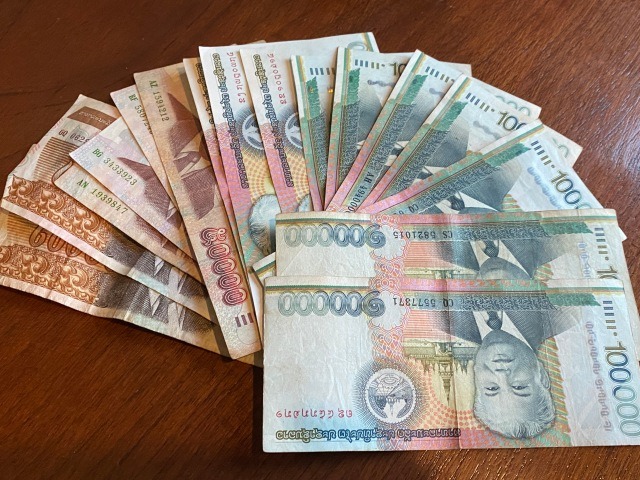
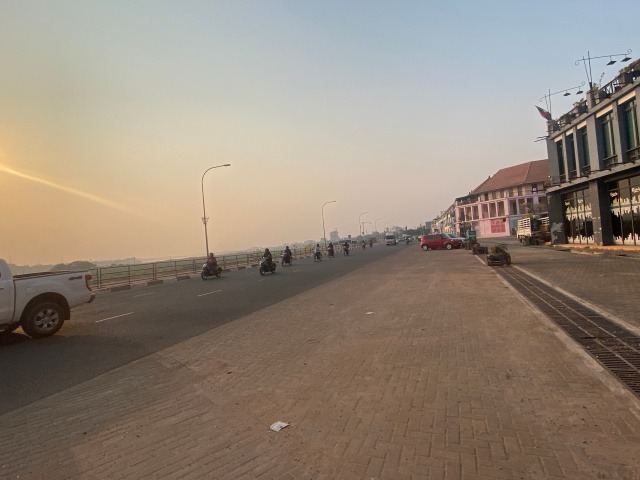

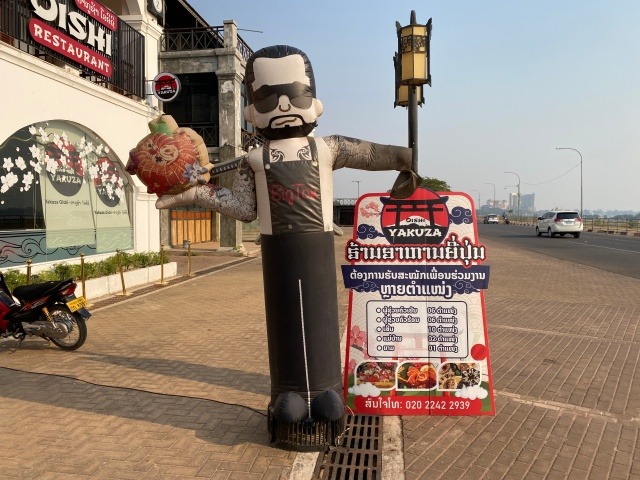
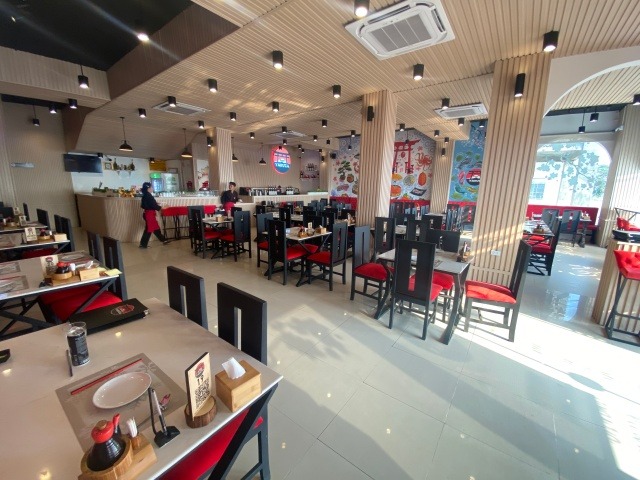
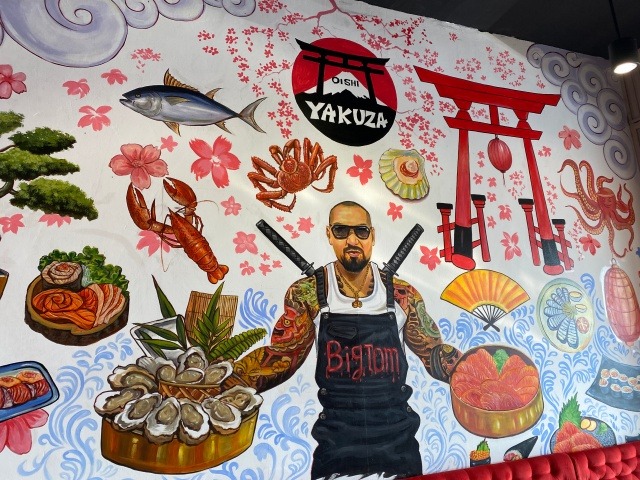

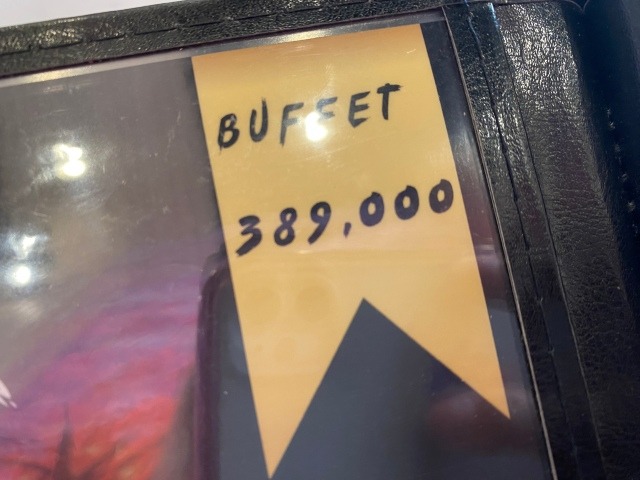
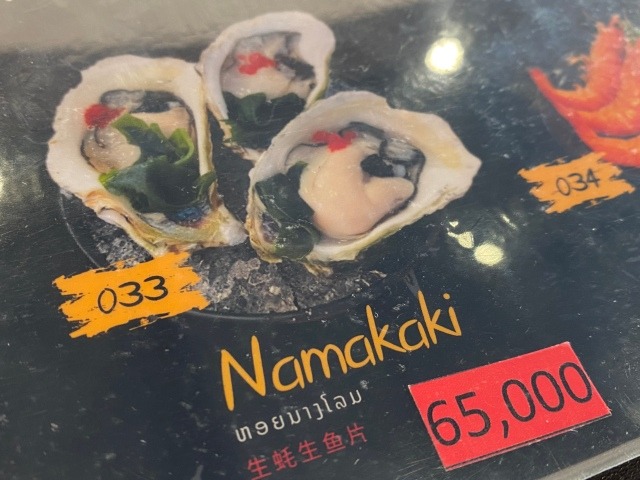

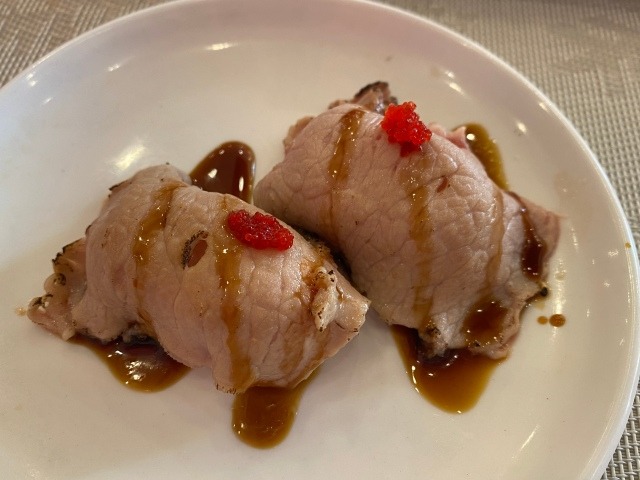
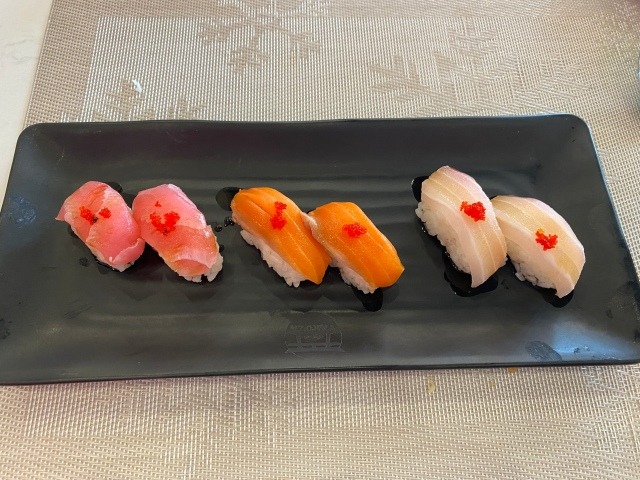

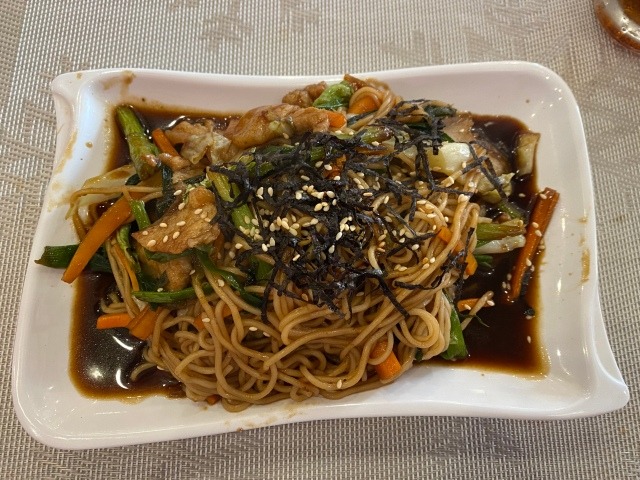
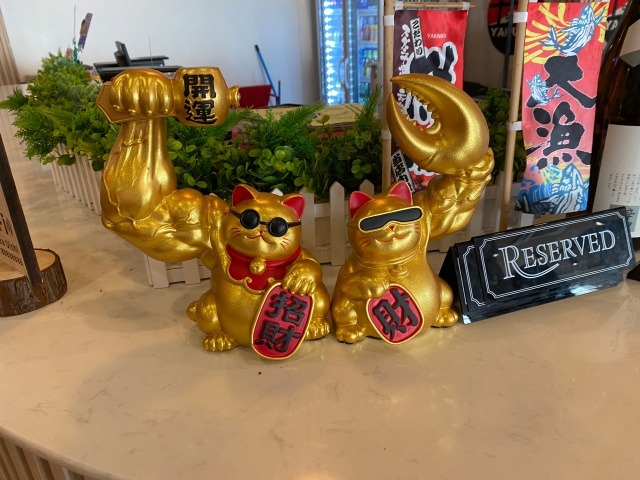
 Visiting Sushiro in Laos, but not that Sushiro…probably
Visiting Sushiro in Laos, but not that Sushiro…probably We try a rotating sushi restaurant in New Delhi, are surprised to find no rotating sushi
We try a rotating sushi restaurant in New Delhi, are surprised to find no rotating sushi We visit a restaurant called ‘Otaku’ in France, eat some otaku sushi
We visit a restaurant called ‘Otaku’ in France, eat some otaku sushi Egyptian restaurant Sumo Sushi offers our Japanese reporter a delightful yet quirky lunch
Egyptian restaurant Sumo Sushi offers our Japanese reporter a delightful yet quirky lunch Yoko Sushi chain in Germany is doing its own thing and honestly, we’ve got to respect that
Yoko Sushi chain in Germany is doing its own thing and honestly, we’ve got to respect that Japanese drugstore sells onigiri at pre-stupid era prices, but how do they compare to 7-Eleven?
Japanese drugstore sells onigiri at pre-stupid era prices, but how do they compare to 7-Eleven? Japan Extreme Budget Travel! A trip from Tokyo to Izumo for just 30,000 yen [Part 1]
Japan Extreme Budget Travel! A trip from Tokyo to Izumo for just 30,000 yen [Part 1] 7-Eleven Japan’s sakura sweets season is underway right now!
7-Eleven Japan’s sakura sweets season is underway right now! Hey, 2020s kids! The ’90s have a sticker picture message waiting for you in Tokyo
Hey, 2020s kids! The ’90s have a sticker picture message waiting for you in Tokyo Beautiful blue apple jam is taking the Japanese internet’s breath away!
Beautiful blue apple jam is taking the Japanese internet’s breath away! Japanese woman stumbles on the power of the infamous “gaijin seat” phenomenon during flight
Japanese woman stumbles on the power of the infamous “gaijin seat” phenomenon during flight The results are in! One Piece World Top 100 characters chosen in global poll
The results are in! One Piece World Top 100 characters chosen in global poll Extreme budget travel! Can you do a good weekend trip to Taiwan with 50,000 yen (US$370)? – Part 2
Extreme budget travel! Can you do a good weekend trip to Taiwan with 50,000 yen (US$370)? – Part 2 7-Eleven Japan starts new temporary luggage storage service in over 300 branches
7-Eleven Japan starts new temporary luggage storage service in over 300 branches Find a red envelope on the ground? Here’s why you should never pick it up
Find a red envelope on the ground? Here’s why you should never pick it up The 10 most annoying things foreign tourists do on Japanese trains, according to locals
The 10 most annoying things foreign tourists do on Japanese trains, according to locals Starbucks Japan releases new sakura goods and drinkware for cherry blossom season 2026
Starbucks Japan releases new sakura goods and drinkware for cherry blossom season 2026 Is Sapporio’s Snow Festival awesome enough to be worth visiting even if you hate the snow? [Pics]
Is Sapporio’s Snow Festival awesome enough to be worth visiting even if you hate the snow? [Pics] Japan has trams that say “sorry” while they ride around town…but why?
Japan has trams that say “sorry” while they ride around town…but why? Tokyo Skytree turns pink for the cherry blossom season
Tokyo Skytree turns pink for the cherry blossom season Highest Starbucks in Japan set to open this spring in the Tokyo sky
Highest Starbucks in Japan set to open this spring in the Tokyo sky Japan’s new “Cunte” contact lenses aren’t pronounced like you’re probably thinking they are
Japan’s new “Cunte” contact lenses aren’t pronounced like you’re probably thinking they are Shibuya Station’s Hachiko Gate and Yamanote Line stairway locations change next month
Shibuya Station’s Hachiko Gate and Yamanote Line stairway locations change next month Yakuzen ramen restaurant in Tokyo is very different to a yakuza ramen restaurant
Yakuzen ramen restaurant in Tokyo is very different to a yakuza ramen restaurant Starbucks Japan adds new sakura Frappuccino and cherry blossom drinks to the menu
Starbucks Japan adds new sakura Frappuccino and cherry blossom drinks to the menu Japan’s newest Shinkansen has no seats…or passengers [Video]
Japan’s newest Shinkansen has no seats…or passengers [Video] Foreigners accounting for over 80 percent of off-course skiers needing rescue in Japan’s Hokkaido
Foreigners accounting for over 80 percent of off-course skiers needing rescue in Japan’s Hokkaido Super-salty pizza sends six kids to the hospital in Japan, linguistics blamed
Super-salty pizza sends six kids to the hospital in Japan, linguistics blamed Starbucks Japan unveils new sakura Frappuccino for cherry blossom season 2026
Starbucks Japan unveils new sakura Frappuccino for cherry blossom season 2026 Foreign tourists in Japan will get free Shinkansen tickets to promote regional tourism
Foreign tourists in Japan will get free Shinkansen tickets to promote regional tourism Take a trip to Japan’s Dododo Land, the most irritating place on Earth
Take a trip to Japan’s Dododo Land, the most irritating place on Earth Naruto and Converse team up for new line of shinobi sneakers[Photos]
Naruto and Converse team up for new line of shinobi sneakers[Photos] Is China’s don’t-go-to-Japan warning affecting the lines at a popular Tokyo gyukatsu restaurant?
Is China’s don’t-go-to-Japan warning affecting the lines at a popular Tokyo gyukatsu restaurant? Survey asks foreign tourists what bothered them in Japan, more than half gave same answer
Survey asks foreign tourists what bothered them in Japan, more than half gave same answer Japan’s human washing machines will go on sale to general public, demos to be held in Tokyo
Japan’s human washing machines will go on sale to general public, demos to be held in Tokyo Starbucks Japan releases new drinkware and goods for Valentine’s Day
Starbucks Japan releases new drinkware and goods for Valentine’s Day We deeply regret going into this tunnel on our walk in the mountains of Japan
We deeply regret going into this tunnel on our walk in the mountains of Japan Studio Ghibli releases Kodama forest spirits from Princess Mononoke to light up your home
Studio Ghibli releases Kodama forest spirits from Princess Mononoke to light up your home Major Japanese hotel chain says reservations via overseas booking sites may not be valid
Major Japanese hotel chain says reservations via overseas booking sites may not be valid Put sesame oil in your coffee? Japanese maker says it’s the best way to start your day【Taste test】
Put sesame oil in your coffee? Japanese maker says it’s the best way to start your day【Taste test】 No more using real katana for tourism activities, Japan’s National Police Agency says
No more using real katana for tourism activities, Japan’s National Police Agency says Let’s see how conveyor belt sushi is done in Prague
Let’s see how conveyor belt sushi is done in Prague We sample the deep sea fish and more at this delectable sushi restaurant in Shizuoka Prefecture
We sample the deep sea fish and more at this delectable sushi restaurant in Shizuoka Prefecture We visit izakaya in Thailand billed as “Middle Aged Man’s Paradise”, try food that’s illegal in Japan
We visit izakaya in Thailand billed as “Middle Aged Man’s Paradise”, try food that’s illegal in Japan Three remarkable ramen shops in Spain, according our traveling Japanese reporter
Three remarkable ramen shops in Spain, according our traveling Japanese reporter Star Kebab’s kebab sushi roll in Akihabara isn’t on the menu anymore but don’t let that stop you
Star Kebab’s kebab sushi roll in Akihabara isn’t on the menu anymore but don’t let that stop you We try chain restaurant miso ramen in Paris and find a slice of home overseas【Pics】
We try chain restaurant miso ramen in Paris and find a slice of home overseas【Pics】 We visit a ramen bar in Croatia, meet a whole new version of ramen we can’t wait to make at home
We visit a ramen bar in Croatia, meet a whole new version of ramen we can’t wait to make at home “Sipping meat,” the semi-secret Osaka food that sounds like a joke, is seriously tasty
“Sipping meat,” the semi-secret Osaka food that sounds like a joke, is seriously tasty The story behind “the most hopeful ramen bar in the world”
The story behind “the most hopeful ramen bar in the world” Amazon’s unmanned ‘just walk out’ store Amazon Fresh leaves us feeling like criminals
Amazon’s unmanned ‘just walk out’ store Amazon Fresh leaves us feeling like criminals We rent Kappa Sushi’s conveyor belt, turn our home into a kaitenzushi restaurant
We rent Kappa Sushi’s conveyor belt, turn our home into a kaitenzushi restaurant Is a full curry meal a smart choice to eat while lying in bed?【Experiment】
Is a full curry meal a smart choice to eat while lying in bed?【Experiment】 “Hey, Japanese taxi driver! Take us to the best restaurant in Sendai!”
“Hey, Japanese taxi driver! Take us to the best restaurant in Sendai!” Sushiro in Hong Kong may be the best in the world and a bittersweet visit for our reporter
Sushiro in Hong Kong may be the best in the world and a bittersweet visit for our reporter Waiter, there’s a SNAKE in my soup — we try Cantonese delicacy snake stew in Hong Kong
Waiter, there’s a SNAKE in my soup — we try Cantonese delicacy snake stew in Hong Kong